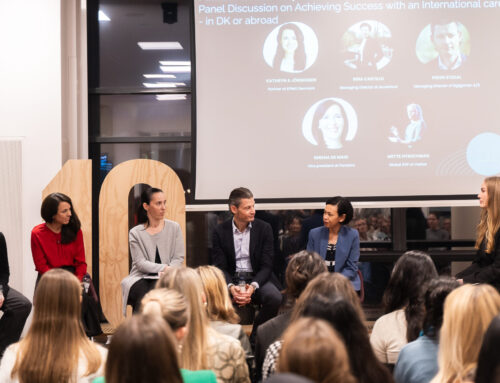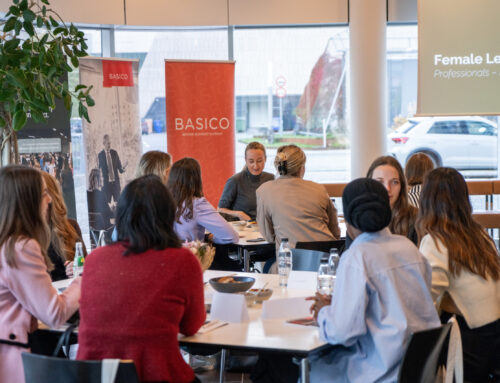The startup environment – a man’s world?

Only 4,2 % of Danish women are “new entrepreneurs”, which is only half of the OECD average, and in the last four years, female entrepreneurs have only landed 1 % of all invested funds in startups in Denmark - discouraging facts, right?
Through the last couple of months, we have seen an increasing focus on the Danish startup environment, and particularly a focus on why women in Denmark are lacking far behind men when it comes to starting up new businesses. A lot of new associations have also emerged in this period such as Female Founders Association and Nordic Female Founders alongside the already established ones, and with great reason.
Because when you look into research in this area, you find - among other studies - a report made by Dansk Erhverv (The Danish Chamber of Commerce) from March 2020, which shows that the proportion of Danish women, who are “new entrepreneurs” is only half as large as the proportion of Danish men in the same field.
The study has also asked into the reason why, and here women answered the following: 26 % of the respondents feel that they are dependent on a fixed income, 13 % answered that they don’t know how to get started, and 10 % fear that their business will not succeed. Even though these are bad scores, they are still outperformed by a score of 27 %, which indicates the number of women in the study, who haven't started their own business yet, because they feel they lack the competencies.
When we think of the Danish school system, it doesn’t really surprise us. We learn about grammar, science, languages, and mathematical models, but the teaching focuses very little on how businesses work with finances, HR, law, etc., and what it takes to start your own business. We are taught that we should follow the norm, and if our minds think a little too creatively and want to go other ways by e.g. starting our own business instead of getting a job with a fixed income, then it is bad.
With that in mind, we can fully understand, why so many women list “lack of competencies” as a reason for not starting their own businesses, and if we also include the consequences of imposter syndrome, which many women suffer from, it becomes even clearer to us. Imposter syndrome is a psychological pattern where a person doubts his or her own accomplishments or talents and has a persistent internal fear of being exposed as a "scammer". Despite external evidence of your competence, you are convinced that you are a scammer and do not deserve what you have achieved.
Okay, so now we have established that many women struggle to leap into starting their own business. But what about those who have done it?
A report on the Nordic entrepreneurial environment from Unconventional Ventures and Dutch Dealroom.co shows that almost all invested funds go to Danish startups founded exclusively by men. Through the last four years, only 1 % of all invested funds has been given to companies with only female founders, while companies with only male founders have received 93 % of the funding, and the remaining 6 % has been given to companies with a mixed group of founders.
And a lot of the explanation can be found in the degree of diversity among the companies who make the investments, the report tells us. We believe in and want to work with people, who look like ourselves - both physically and personally - so if the investors are men, they will most likely invest in men. Our goal is not to shame out male investors, because we do not believe that they purposely decide to invest only in male founded startups - maybe some of them do, but definitely not all. Instead, we believe that this is caused by unconscious biases that exist in all of us. And to make up with these unconscious biases, we must first of all be aware of them and second of all train our minds, so they affect us less. And of course, we should also focus on increasing the diversity among investors, because it is a fact that more diverse teams create more innovative solutions and better (financial) results.
At Female Leader Academy our goal is exactly to create greater diversity in management. And we do it by informing, educating, and connecting career-minded young professionals, so they hopefully will be aware of these unconscious biases, feel confident, never feel that they lack the competencies needed to succeed in their life, and never ever believe that this is a man’s world.







